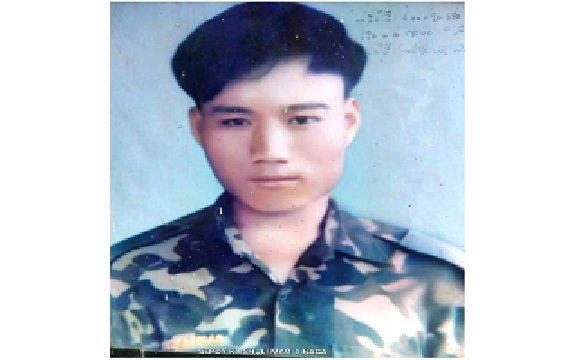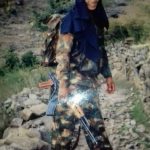During the summer of 1999, as the Kargil conflict flared along India’s northern frontier, the 1st Battalion of the Naga Regiment—under the command of Colonel D. A. Patil—was redeployed from the Kangan valley to the Drass sector on 11 May. In Drass, it fell under Brigadier Surinder Singh’s 121 Infantry Brigade. Intelligence reports had already confirmed that Pakistani regulars and irregulars were dug in across the Tololing ridge system—a jagged, wind-raked chain of heights that overlooked the strategic Leh–Srinagar highway. By late June, Indian troops had retaken Tololing Top and the adjoining feature known as “Hump,” yet the ridge’s pivotal height—Point 5140—still blocked a secure passage. To break this impasse, the brigade planned a three-pronged assault: 13 JAK Rifles, 18 Garhwal Rifles, and 1 Naga would converge on Point 5140 from different axes. Within that plan, Alpha Company of 1 Naga was ordered to ascend the south-western spur and capture two subsidiary crags, code-named “Pyramid” and “Black Tooth,” whose seizure was vital for the final strike on Point 5140.
Among Alpha Company’s assault group was Sepoy K. Ashuli Mao. Only twenty-three yet already seasoned in high-altitude soldiering, he began the climb on the evening of 22 July. The route soon narrowed into a sheer wall where the men could find no footholds, and every silhouette drew bursts of tracer fire from enemy sangars hidden among the shattered rocks above. Realising that the advance would stall unless a fixed rope could be laid, Sepoy Ashuli volunteered to pioneer the route. Disregarding his own safety, he inched up fourteen metres of exposed rock using only finger-holds in the granite face, all while enemy automatic fire cracked around him. Reaching the crest, he secured the rope and hauled up the first wave of comrades. Once his section gained the ridge line, Sepoy Ashuli—alongside Sepoy Sunder Singh Negi—stormed the Black Tooth sangar. His light-machine-gun bursts held the defenders’ heads down long enough for a grenade to find its mark. The position fell, opening the gateway to Point 5140, but during those frantic seconds Sepoy Ashuli was hit by enemy fire and gravely wounded. He held on through the night, relaying the success of the mission to his platoon commander before succumbing to his injuries in the early hours of 23 July 1999. Alongside Sepoy K Ashuli Mao, Sepoy Sunder Singh also made the supreme sacrifice during the course of this operation.
Sepoy K. Ashuli Mao’s self-sacrifice shattered the enemy’s last line of defence on that spur. By dawn, Point 5140 was firmly in Indian hands, a victory that swung the Tololing battle—and ultimately the Kargil campaign—in India’s favour. For his conspicuous gallantry, indomitable spirit, and devotion to duty beyond all call, he was posthumously awarded the "Vir Chakra".
Sepoy K Ashuli Mao is survived by his son, Shri Hriiyio Mao, and brother, Shri David Ashuli.



Ashuli Hriiyio
2023 at 10:13 amProud of you daddy
Swapnil
2024 at 8:27 pmA true hero